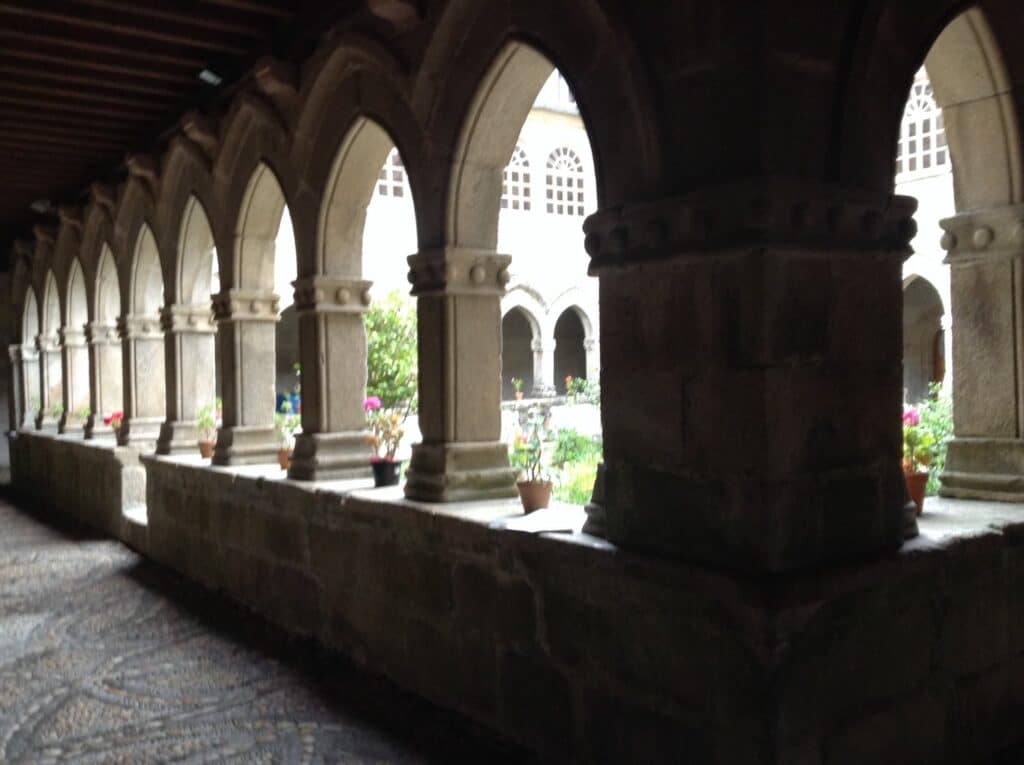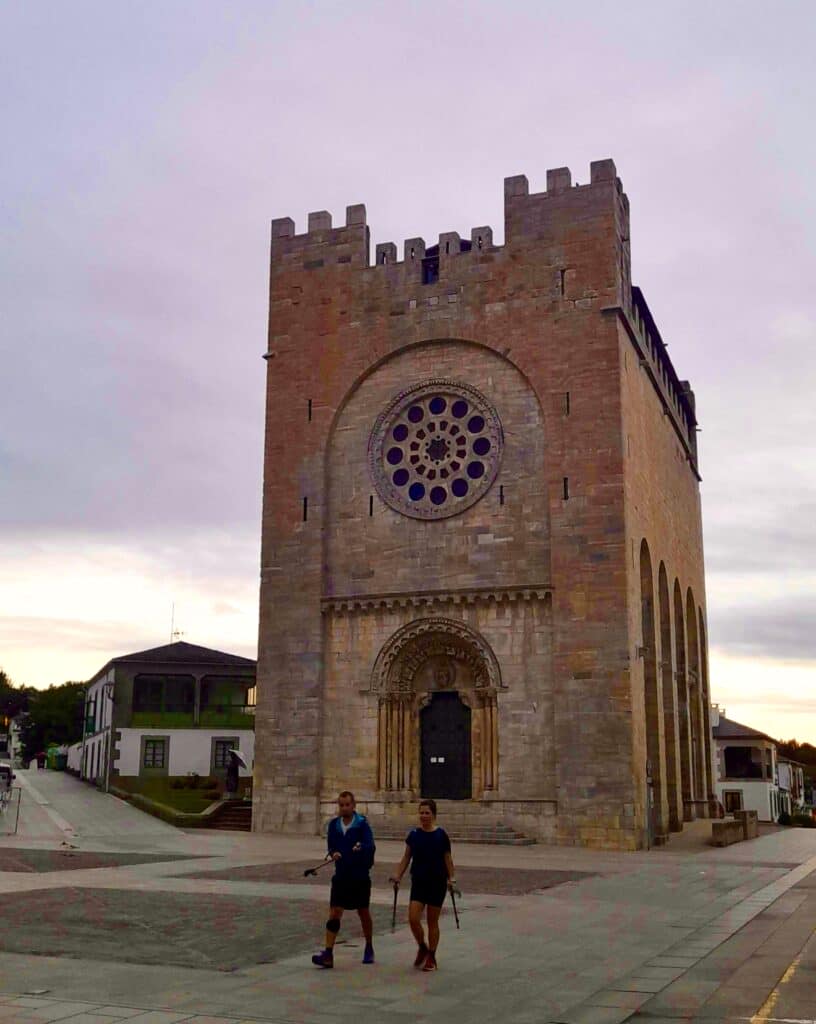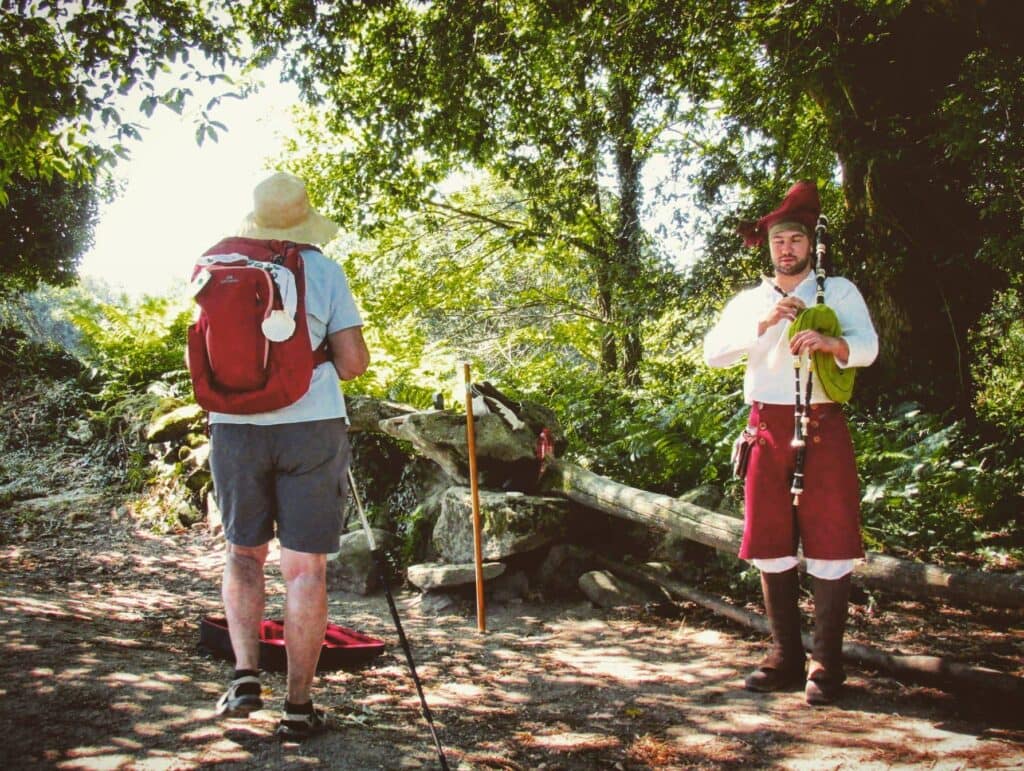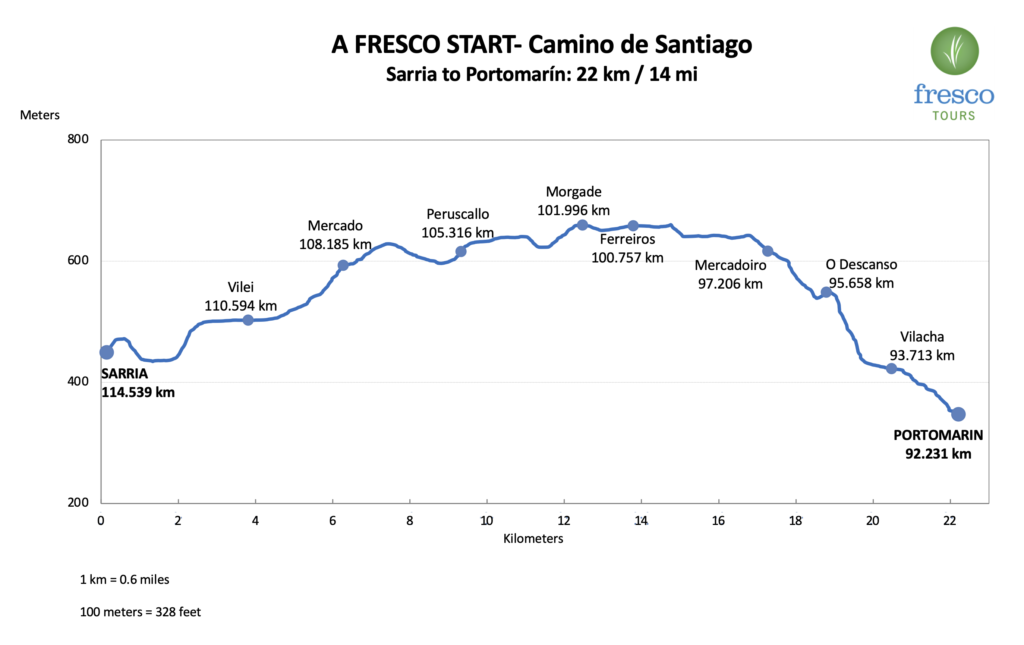Today you walk from Sarria to Portomarín. Sarria is named after the river that flows through it, the River Sarria. There is a fairly accepted hypothesis that the origin of the river’s name (and thus the town’s) comes from a Pre-Roman Gaelic tribe that had settled in this region, the Seurri.
Sarria is also the unofficial starting point for pilgrims who only can or want to do the required last 100 kilometres. Indeed, only a few hours on our way to Portomarín, we will pass by the 100 km marker to Santiago de Compostela.

Perhaps Sarria’s best-known monument is the Mercedarian monastery of the Magdalena (Magdalene). It is right at the top of the hill and you can visit it (assuming it is open) just before initiating the descent out of town. It is a Gothic structure that boasts a lovely cloister. The convent also offers a basic but appropriate pilgrim’s hostel. Note the interesting sculptures in relief by the main door, which depicts the arrival of Mary Magdalene (hence the name of the convent) by boat to the city of Marseille where she preached and lived until her death.
The Mercedarians (aka. Order of the Blessed Virgin Mary of Mercy)
This religious order was founded in the early 13th century by Saint Peter Nolasco after receiving instructions from the Virgin Mary. Its main mission, apart from monastic duties to God, was to pay the ransoms of captured Christians.
The ransoming of captives and the slave trade of captured Christians was a prosperous business during the Middle Ages (moreover for the Muslim side as they traded in slaves). Thus, pirate pillaging and plundering was a common occurrence throughout these times, especially in regions that were under Christian control. St. Peter Nolasco, concerned about the plight of these Christian captives set up a network of monasteries throughout Europe that gradually became very successful thanks to popular, noble and royal patronage. The order is supposed to have freed up to 70.000 captives, of which 2.700 were freed during the saint’s time.
Apart from the three classic monastic vows (obedience, conversion of life, and stability), the Mercedarians take a fourth vow, which is to give their life for someone who is in danger of losing his or her faith.

As you arrive to our destination, we must cross the Ponte de Miño bridge, which offers some beautiful views of the valley and reservoir. If the water is low, typically in autumn, you may see some remains of the old town.
Upon arrival, one of the first things you will notice about Portomarín is its unique location, the village is situated on the banks of the Mino River. We will see notable landmarks including the Church of San Nicolás y San Juan, which was strategically designed by the local religious militia and authorities with one single nave to appear as a military keep. You will learn more about the fascinating history of this structure from our Fresco Tours guides. The west door depicts the Last Judgement, a favorite image amongst medieval sculptors and the Church as this is the door the locals would have come through on their way to Mass.

The central square of Portomarín is a lively gathering place. Full of cafes, restaurants, and shops where you can relax, enjoy local food, and even purchase souvenirs. Bravo, you have completed your first stage from Sarria to Portomarín!







